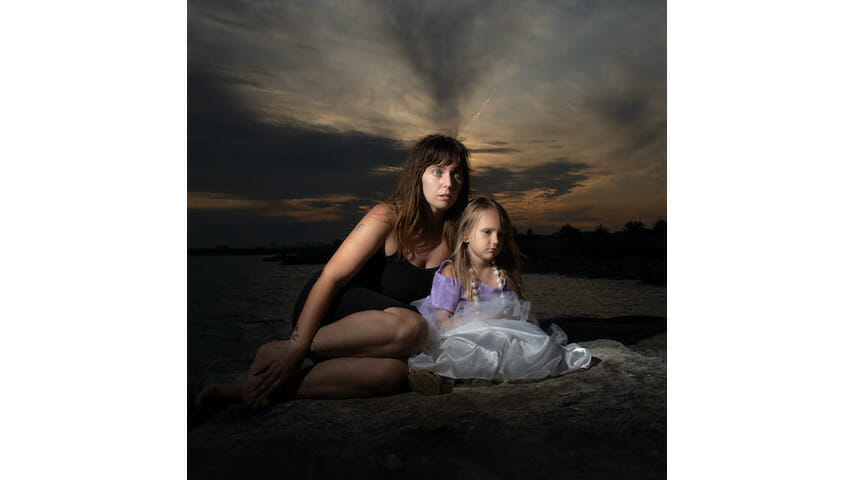U.S. Girls’ Heavy Light Overflows with Empathy
Meghan Remy looks inward on her follow up to In a Poem Unlimited

If Heavy Light were released five years ago, it wouldn’t be considered a political album. Thankfully (or unfortunately) not even a casual listener in 2020 would miss Meghan Remy’s cutting commentary, a convention of her music that’s become quintessential in her over 10-year musical career.
Her most referential work to date, Heavy Light is defined by an inward-facing well of civic unrest, with Remy foregoing the prescriptive style of her manifesto-like 2018 album In a Poem Unlimited. The record’s name is itself a reference to Franz Kafka (“Faith, like a guillotine. As heavy as light.”), and Remy merges the ideals of the realist movement with narratives of experiential, hometown frustration. There’s a clear reference to Bruce Springsteen (instead of being “Born to Run,” Remy would say she’s “Born to Lose”) throughout Heavy Light, with Springsteen’s current E Street Band saxophonist Jake Clemons interjecting a soul-rousing solo in lead single “Overtime.”
It’s here, after the only two songs on Heavy Light that even slightly resemble Poem (“4 American Dollars” and “Overtime”), that Remy begins to build the conscience-focused rhetoric of the record. Largely, the album is a move to activism of consent: She isn’t making assumptions about what people want or how they feel; they have to want it too, and need to get there in their own right. Instead of writing a singular narrative of oppression, Remy shares her own story to urge consciousness from listeners, while injecting sound collages of people sharing their own personal experiences scattered throughout the album. And it’s hopefully resonant. She’s aware that this plurality of narrative is a more truthful way to write music about resistance, and manifests as an outreached hand instead of a pointed finger.
On “The Most Hurtful Thing,” voices of men and women flit in and out like a polite crowd. “I would only get uglier,” a woman says. “I was told I would spend an eternity in hell,” a man muses simultaneously. “It’s still in there.” Whether intentional or a result of sheer statistics, every story is predicated on abusive parenting or evangelical prejudice. This leads into “Denise, Don’t Wait,” a gospel-influenced song that could have fit in easily on Patti Smith’s Easter. Led by marimba and strings, Remy considers her complex relationship with her mother, a struggle she seemingly continues to contend with.
-

-

-

-

-

-

-

-

-

-

-

-

-

-

-

-

-

-

-

-

-

-

-

-

-

-

-

-

-

-

-

-

-

-

-

-

-

-

-

-








































